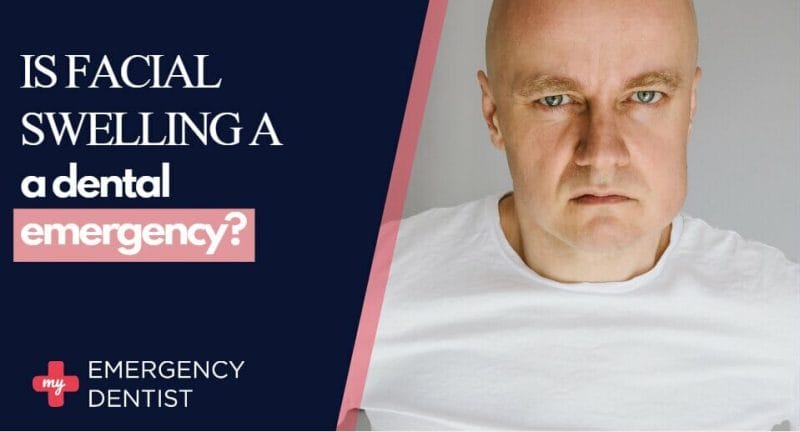- Facial swelling can be caused by various dental issues, and some cases require immediate dental attention.
- Common causes of facial swelling include abscessed teeth, but other causes can include sinus infections or allergic reactions.
- If you are experiencing facial swelling, you should call your dentist to assess your symptoms and develop a treatment plan tailored to your needs.
- It is crucial to seek immediate dental care if you experience any of the extreme symptoms, as untreated dental abscesses can lead to severe infections that can be life-threatening.
- Symptoms of an abscessed tooth include severe toothache, sensitivity to hot and cold temperatures, fever, difficulty swallowing and chewing, and swollen lymph nodes under the jaw or neck.
Facial swelling can be a scary and uncomfortable experience for anyone. It can cause a lot of discomfort, pain, and sometimes embarrassment, especially if it affects your appearance. However, not all cases of facial swelling require immediate dental attention.
Understanding the underlying causes of facial swelling and knowing how to identify when it is considered a dental emergency can help you make the right decision when seeking medical care.
In this article, we will explore the causes of facial swelling in detail, along with the signs and symptoms that indicate a dental emergency in Perth.

Contents
What Causes Facial Swelling?
Facial swelling is a common symptom of various dental issues, and the causes of facial swelling can range from minor injuries to serious infections or underlying medical conditions.
Often, facial swelling is a result of inflammation in the affected area, and it can occur suddenly or gradually. A common cause of facial swelling is an abscessed tooth. However, other causes of facial swelling may not be related to dental issues, and these include a sinus infection or an allergic reaction.
Knowing when to seek emergency dental care for facial swelling can be confusing, but it is important to be aware of the warning signs. In some cases, facial swelling can be a sign of a serious dental issue that requires immediate attention from a dentist. Delaying treatment for dental emergencies can lead to severe complications, and in some cases, can be life-threatening.
Abscessed Tooth
An abscessed tooth is a dental infection that causes immense pain and swelling in the surrounding area. Tooth decay, gum disease, or trauma can cause an abscessed tooth.
Symptoms of an abscessed tooth include severe toothache, sensitivity to hot and cold temperatures, fever, difficulty swallowing and chewing, and swollen lymph nodes under the jaw or neck. If you experience any of these symptoms, it is important to seek immediate dental care.
Symptoms Of An Abscessed Tooth Include:
- Severe toothache, throbbing pain, or a constant headache
- Sensitivity to hot and cold temperatures while eating or drinking
- Fever, difficulty swallowing and chewing
- Facial swelling and redness
- Swollen lymph nodes under the jaw or neck
You should seek immediate dental care if you experience any of these symptoms. Your dentist will likely suggest antibiotics to alleviate the infection and painkillers to relieve the pain. Root canal therapy or tooth extraction may also be required to remedy the abscessed tooth. It is important to note that untreated dental abscesses can lead to severe infections, which can be life-threatening.
What Happens During An Emergency Dental Visit?
When you experience a dental emergency such as facial swelling, it is crucial to see an emergency dentist for assessment as soon as possible. Delaying treatment can lead to further complications that can cause severe pain, infection, or even loss of teeth.
The dentist or hygienist will examine if you have teeth or gum problems, and they may take X-rays to help them assess the situation. They will then discuss their findings with you and explain the steps to be taken to treat the problem.
Depending on the situation, the dentist may provide immediate treatment. This could include filling a cavity, cleaning an infected area, or extracting a tooth.
In some cases, you may need to schedule a follow-up appointment to receive treatment.
What Should You Do If You Are Experiencing Facial Swelling?
If you are experiencing facial swelling, the first thing you should do is call your dentist. They will be able to assess your symptoms and develop a treatment plan that is tailored to your needs. In some cases, they may refer you to an emergency dentist or the hospital.
While waiting for your appointment, there are some steps you can take to alleviate the symptoms and prevent further infection. Applying a cold compress to the affected area can help reduce swelling and discomfort. You can also rinse your mouth with warm saltwater to help reduce inflammation and promote healing.
If you are experiencing extreme tooth pain, or you have lost a tooth due to injury, it is important to see an emergency dentist right away. You can contact us here at My Emergency Dentist, and we are always ready to help you with your emergency dental needs!

